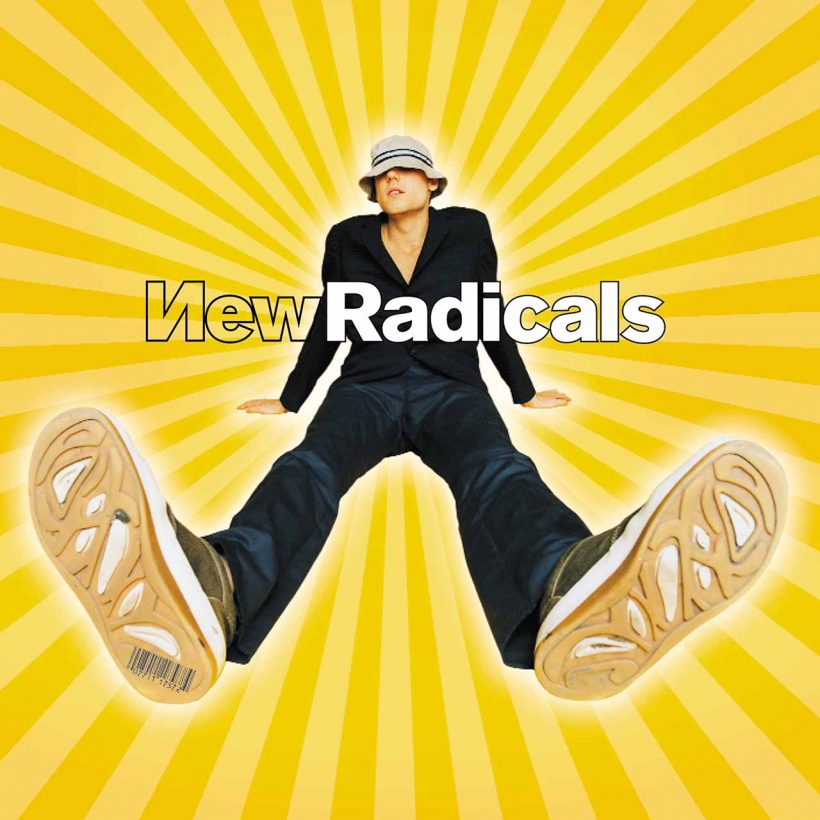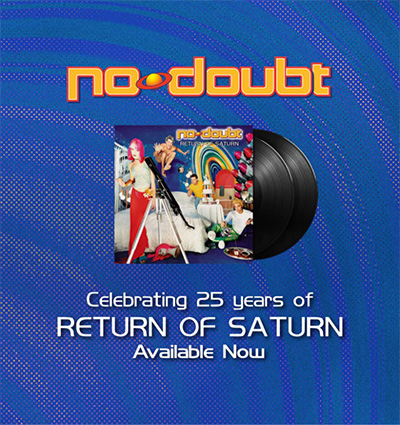‘Maybe You’ve Been Brainwashed Too’: The Iconic New Radicals Album
The story of how Gregg Alexander finally found pop fame before calling time on the acclaimed project.

Back in the summer of 1999, amid Phantom Menace fever and fears of the Millenium bug, New Radicals‘ pop-rock smash hit “You Get What You Give” was inescapable. For Gregg Alexander, the one-man-band behind the group, it was everything he’d ever wanted. New Radicals’ debut album, Maybe You’ve Been Brainwashed Too, followed suit, becoming a worldwide hit. It seemed like the start of something big. And yet, as the album’s second single, the bittersweet ballad “Someday We’ll Know,” was about to released, Alexander disbanded the group and walked away from it all.
That success was a long time coming. Alexander was raised in Grosse Pointe, Michigan, by “a low-grade dysfunctional family”, as he told Spin in 1999. A youthful love of music became an obsession when he sneaked into a screening of Prince’s Purple Rain movie. “‘Let’s Go Crazy’ knocked me over my head,” Alexander recalled in a 2014 Hollywood Reporter interview. “Then when I heard ‘The Beautiful Ones’ it was all over.”
Do you love 90s music? Buy the best 90s music on vinyl here or stream it on this playlist.
Alexander was so intoxicated by rock’n’roll, he made plans to move to Los Angeles to follow his dream, leaving high school battle of the bands competitions behind. “I didn’t want to be part of organised religion or follow the same path as my schoolmates into college and a career that I didn’t love,” he told The Guardian in 2024. “I was willing to throw it all away for rock’n’roll.”
Not only did he make good on his plans to move, but by 16 he’d signed a production deal with A&M Records and three years later released his debut solo album, 1989’s Michigan Rain. The album failed to connect with an audience, not helped by a lack of promotion from a label undergoing a takeover from Polygram. Alexander’s second bid for stardom came when he signed to Epic for 1993’s Intoxifornication, but grunge was still in vogue and his sound was out of step. “I refused to sound like that because it wasn’t me,” he later said. “I couldn’t fake that. I had to follow my heart creatively.” The album flopped and once again, Alexander was looking for a record deal.
Despite the setbacks, Alexander continued writing, determined to follow his own vision. He called upon Danielle Brisebois – a child actor turned musician who was in the original cast of Annie on Broadway aged eight – who had sung backing vocals on Intoxifornication to form a group, New Radicals. To save money, they booked late night studio sessions and recorded the demos that would become Maybe You’ve Been Brainwashed Too. The idea was to “completely rip up” the “few rules that applied to my first two records…,” he told the Hollywood Reporter. “Most of that record was me pulling favors with studios or musicians that had played on earlier records and were like, ‘Oh, Gregg’s down on his luck — let’s go play on his demo for the hell of it, we’ll have a good laugh, have a couple of beers and maybe smoke a jay or whatever.’”
A demo from the sessions found their way to Michael Rosenblatt, the A&R man who’d signed Madonna, who was impressed enough to offer New Radicals a contract. “We captured something that I thought the music business, even at that time, had become too big-business and corporate to acknowledge,” Alexander said of the album. “But, to my pleasant surprise, somebody wanted to sign me [again]. I couldn’t believe it.”
Amazingly, most of the songs Alexander recorded with a bunch of pals – including Rusty Anderson, who went on to play in Paul McCartney’s live band from 2001 onwards – were mastered direct from that demo tape for Maybe You’ve Been Brainwashed Too. But one of the tracks in particular demanded a more professional recording. “’You Get What You Give’ was the only time I had an unlimited budget,” Alexander told The Guardian. “That’s why that song has so many different sections and melodies. Pop. Rock. Soul. Pianos. I figured, ‘Nobody may ever even hear this, so let’s throw in the kitchen sink and the bathwater as well.”
The investment paid for itself many times over. “You Get What You Give” reached the UK Top 5 and the US Billboard Top 40 on its release and became a radio staple. It has since become one of the most enduring songs of the 1990s.
But “You Get What You Give” was a Trojan horse. On the surface was the song’s joyful exuberance, relentless hooks, and hope-filled chorus, but its lyrics saw Alexander taking aim at the ills of society. “In a pop song, I was going after health insurance companies and corruption — ‘Health insurance rip off lying’; the FDA, the Food and Drug Administration, and the hypocrisy of the war on drugs, which was not real; ‘big bankers’ and Wall Street. To allude to all that stuff in a pop song was, in retrospect, a naively crazy proposition,” he later conceded.
The final section of the song found Alexander cutting loose and railing against a selection of pop stars, including Courtney Love, Beck, and Marilyn Manson. He later explained to The Guardian that the jokey digs were a result of his “naive curiosity, whether a pop song had the audacity to go after bankers, the FDA, health insurance companies and corruption and include a throwaway lyric about three or four artists. I got the answer loud and clear because almost nobody asked me about the political lyrics, which are its legacy. Twenty-five years ago, all that stuff was on the horizon, but nobody could have imagined that it would get so much worse. That song was my own innocent attempt to fight the power.”
An upside was that “You Get What You Give” earned Alexander the admiration of his songwriting heroes. In 2000, Joni Mitchell told Rolling Stone, “That’s the first song since I was a teenager that I rushed to the radio to turn up. I like the harmony, I like the passion in his voice. I love the song, you know, ‘You got the music in you,’ and I love the punk irreverence of it. Now, that’s my kind of punky white boy.” Alexander later revealed that both George Michael and Prince had told him they were fans.
Still, there was so much more to Maybe You’ve Been Brainwashed Too than its hit single. “Mother We Just Can’t Get Enough” swaggers along like the Stones’ “Sympathy For The Devil” gone disco, with Alexander demonstrating his vocal prowess with some wild screams. It’d later be covered by U2. The stadium-sized anthem “Flowers” also shows Alexander’s rock chops.
Elsewhere, “I Hope I Didn’t Just Give Away The Ending,” “I Don’t Wanna Die Anymore,” and “Crying Like A Church On Monday” point to Alexander’s talent for soulful ballads with a lyrical edge. And songs such as the voodoo vibes of the track and the infectious country-pop of “Technicolor Lover” underline Alexander’s range as a writer.
The hit that could’ve been was “Someday We’ll Know,” a slow-burning mid-paced ballad that finds Alexander posing unanswerable questions (“Did the captain of the Titanic cry?”) before a soaring chorus. It’s easy to imagine it being a hit and a video was even made for it, but on the eve of its release, Alexander called it quits, releasing a statement which confirmed the New Radicals, “[would] no longer be a recording, promoting, or performing entity,” and that he would be writing for other artists, as “the fatigue of traveling and getting three hours’ sleep in a different hotel every night to do boring ‘hanging and schmoozing’ with radio and retail people is definitely not for me.”
He made good on his promise and has since written for Sophie Ellis-Bextor (including the disco phenomenon “Murder On The Dancefloor,” which he told The Guardian was almost a New Radicals song), Ronan Keating (the UK No 1 “Love Is A Rollercoaster”), Santana (the Grammy-winning “The Game Of Love”) and many more. In recent interviews, he has suggested he is still a prolific writer and that he may be sitting on a treasure trove of unreleased gems, though he is cautious. “Songs are like children,” he explained to Billboard in 2018. “You want to protect them, but I’m delighted when some make their way out in the world.” Pop lovers around the world hope that we hear much more from him soon.
Listen to The New Radicals Maybe You’ve Been Brainwashed Too now.












